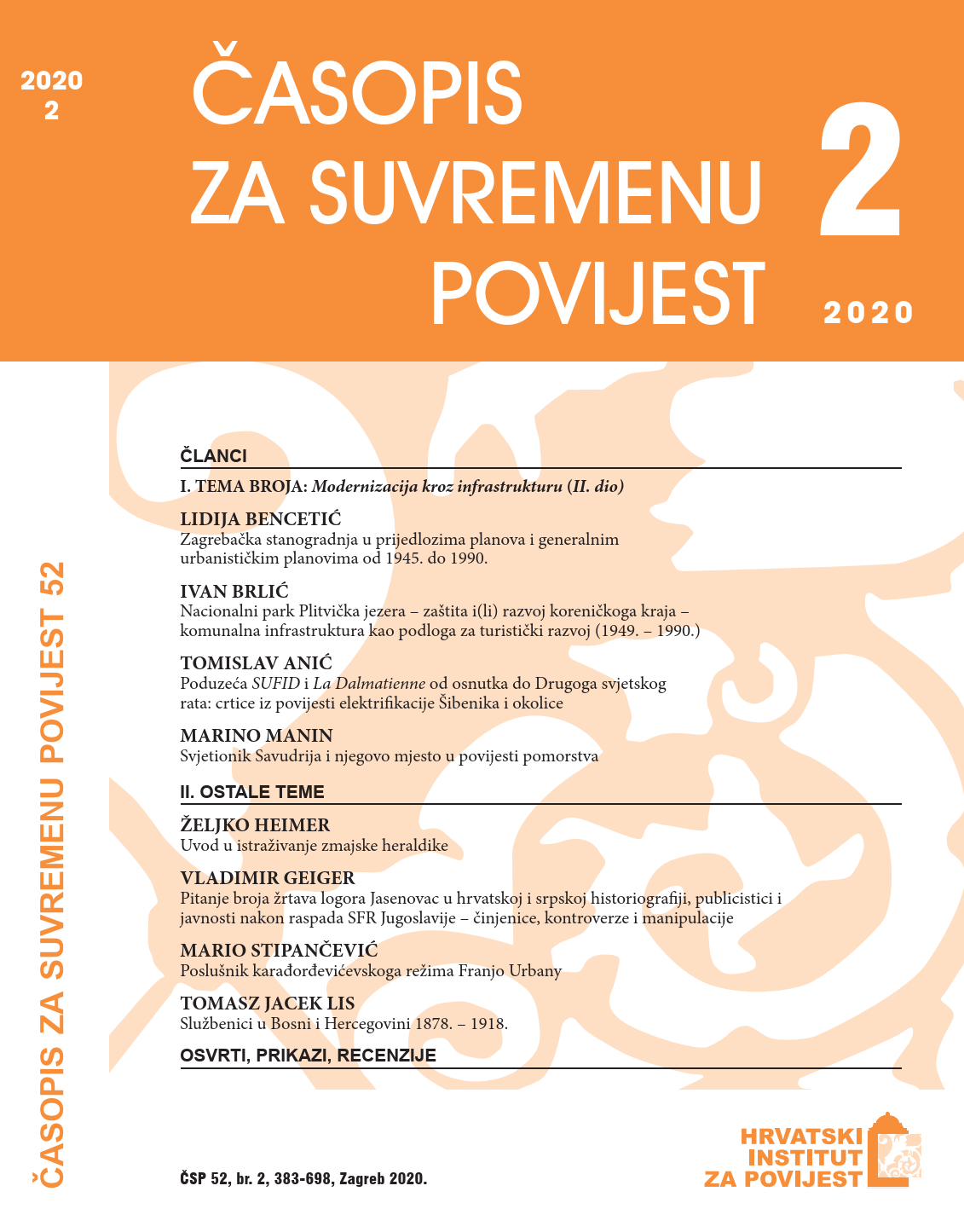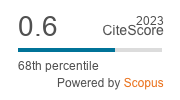The ‘SUFID’ and ‘La Dalmatienne’ Companies from their Founding to World War II: Notes from the History of the Electrification of Šibenik and its Surroundings
DOI:
https://doi.org/10.22586/csp.v52i2.10626Keywords:
SUFID; La Dalmatienne; modernisation; Šibenik; electrification; economic historyAbstract
The history of large industrial companies in the late 19th and first half of the 20th century mirrors the modernity of every society. The goal of this paper is to explore the history of the companies ‘SUFID’ and ‘La Dalmatienne’ in light of those economic and political developments that influenced their work. Based on archival research conducted in the Croatian State Archives and the State Archives in Šibenik, the work of the ‘SUFID’ and ‘La Dalmatienne’ factories in regard to the development of electrification and its consequences are analysed. The focus of study is the production of electrical energy, which made up a significant part of the total production of both companies and greatly changed the life of Šibenik and its surrounding area.
Through case studies on the development of the ‘SUFID’ and ‘La Dalmatienne’ companies, some of the more important elements of the functioning of the economy are explained, such as the influence of global economic trends on local economic developments and the influence of international politics on domestic politics, which had a direct impact on the functioning of the economy and the regulation of property-law relations. The consequences of industrialisation, i.e. its direct influence on the immediate surroundings, are also analysed. From the time of early industrialisation, property-law relations were encroached upon, as was the manner of their resolution, in order to pave the way for changes in space needed for the development of infrastructure, especially roads and power transmission line routes.
Downloads
Published
How to Cite
Issue
Section
License
Copyright (c) 2020 authors and journal

This work is licensed under a Creative Commons Attribution-NonCommercial 4.0 International License.
Copyright holders are the publisher Croatian Institute of History and the authors. Journal of Contemporary History is an Open Access journal. Users are allowed to read, download, copy, redistribute, print, search and link to material, and alter, transform, or build upon the material, or use them for any other lawful purpose as long as they attribute the source in an appropriate manner according to the Creative Commons licence CC BY-NC. The papers published in Journal of Contemporary History can be deposited and self-archived in the institutional and thematic repositories providing the link to the journal's web pages and HRČAK. Journal does not charge article processing charges (APC). The editors assume no responsibility for statements of fact or opinion made by contributors.




